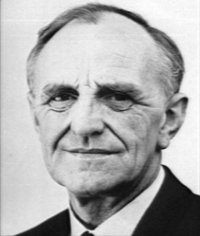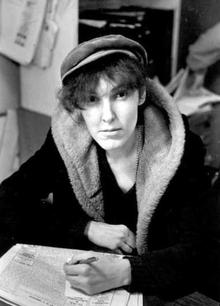A Quote by Al-Ghazali
To completely trust in Allah is to be like a child who knows deeply that even if he does not call for the mother, the mother is totally aware of his condition and is looking after him.
Related Quotes
How is it possible for one’s heart to be certain that one is going to meet Allah, that Allah sees and hears all that he does, and knows his secret open affairs, and that he will be made to stand before Allah, answerable for all his deeds - how can one be certain and aware of all of this, and yet persist upon things which displease Allah; persist upon abandoning Allah’s orders, neglecting His rights, and yet claim that he has good expectation of Allah?
The mother gazes at the baby in her arms, and the baby gazes at his mother's face and finds himself therein... provided that the mother is really looking at the unique, small, helpless being and not projecting her own expectations, fears, and plans for the child. In that case, the child would find not himself in his mother's face, but rather the mother's own projections. This child would remain without a mirror, and for the rest of his life would be seeking this mirror in vain.
Years ago someone wrote [about me]: 'She characterizes Molly Weasley as a mother who is only at home looking after the children.' I was deeply offended, because I until a year before that had also been such a mother who was at home all the time taking care of her child [...] What has lesser status and is more difficult than raising a child? And what is more important?
However patriarchal the world, at home the child knows that his mother is the source of all power. The hand that rocks the cradlerules his world. . . . The son never forgets that he owes his life to his mother, not just the creation of it but the maintenance of it, and that he owes her a debt he cannot conceivably repay, but which she may call in at any time.
A real man doesn't have to run from his mother, and may even have to face the reality that no great deed is going to be great enough for him to ransom himself completely, and he may always be in his mother's debt. If he understands that . . . he won't have to feel guilty, and he won't have to please her completely. He can go ahead and be nice to her and let her be part of his life.
The great constructive energies of the child ... have hitherto been concealed beneath an accumulation of ideas concerning motherhood. We used to say it was the mother who formed the child; for it is she who teaches him to walk, talk, and so on. But none of this is really done by the mother. It is an achievement of the child. What the mother brings forth is the baby, but it is the baby who produces the man. Should the mother die, the baby still grows up and completes his work of making the man.
"The first awareness of the child comes with his ego. He becomes aware of the "I", not of the Self. Really, he becomes aware first of the "thou". The child first becomes aware of his mother. Then, reflectively, he becomes aware of himself. First he becomes aware of objects around him. Then, by and by, he begins to feel that he is separate. This feeling of separation gives the feeling of ego, and because the child first becomes aware of the ego, ego becomes a covering on the Self. "
As Anna Freud remarked, the toddler who wanders off into some other aisle, feels lost, and screams anxiously for his mother neversays "I got lost," but accusingly says "You lost me!" It is a rare mother who agrees that she lost him! she expects her child to stay with her; in her experience it is the child who has lost track of the mother, while in the child's experience it is the mother who has lost track of him. Each view is entirely correct from the perspective of the individual who holds it .
A mother has a unique perspective. Nobody sees the life of the child the way the child’s mother does—not even the father. This is Mary’s perspective of Jesus life. It seems to me that every genuine Christian, not just Catholics, should be interested in that perspective—and not just interested, but fascinated. In the rosary we ponder the life of Jesus through the eyes of his mother. This is an incredibly powerful experience if we enter into it fully
The male is just a bundle of conditioned reflexes, is incapable of a mentally free response, is tied to his early conditioning, is determined completely by his past experiences. His earliest experiences are with his mother, and he is throughout his life tied to her. It never becomes completely clear to the male that he is not part of his mother, that he is him and she is her.
The idea of feminine authority is so deeply embedded in the human subconscious that even after all these centuries of father-right the young child instinctively regards the mother as the supreme authority. He looks upon the father as equal with himself, equally subject to the woman's rule. Children have to be taught to love, honor, and respect the father, a task usually assumed by the mother.
Praise, help, or even a look, may be enough to interrupt him, or destroy the activity. It seems a strange thing to say, but this can happen even if the child merely becomes aware of being watched. After all, we too sometimes feel unable to go on working if someone comes to see what we are doing. The great principle which brings success to the teacher is this: as soon as concentration has begun, act as if the child does not exist. Naturally, one can see what he is doing with a quick glance, but without his being aware of it.
The mother's and father's attitudes toward the child correspond to the child's own needs.... Mother has the function of making himsecure in life, father has the function of teaching him, guiding him to cope with those problems with which the particular society the child has been born into confronts him.
It is a view of God that compensates every thing else, and enables the soul to rest in His bosom. How, when the child in the night screams with terror, hearing sounds that it knows not of, is that child comforted and put to rest? Is it by a philosophical explanation that the sounds were made by the rats in the partition? Is it by imparting entomological knowledge? No; it is by the mother taking the child in her lap, and singing sweetly to it, and rocking it. And the child thinks nothing of the explanation, but only of the mother.




































